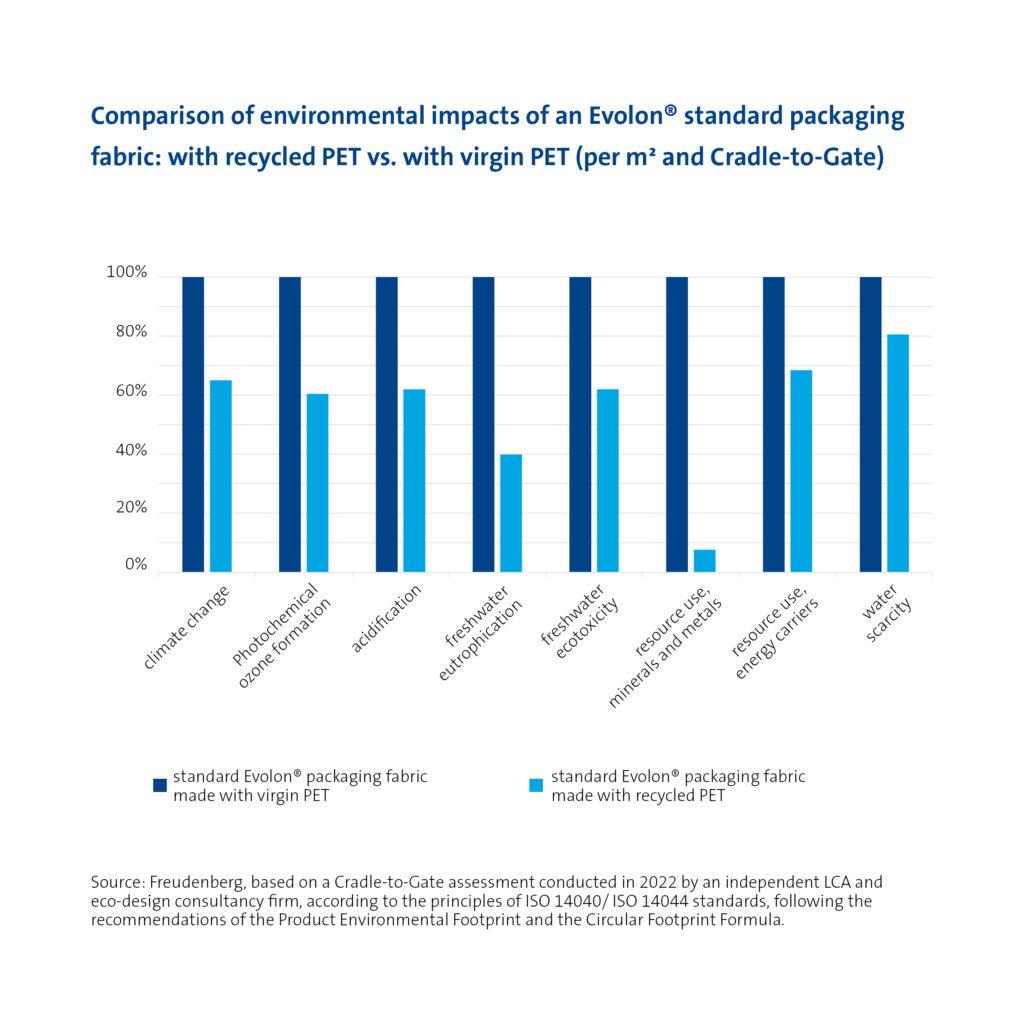
By using a high share of recycled content in its Evolon® materials,
Freudenberg Performance Materials (Freudenberg) offers technical packaging
textiles with a carbon footprint decreased by 35%. An independent LCA study
showed additional benefits such as energy resource savings and lower water
use. Furthermore, Evolon® fabrics provide sustainability benefits over the
packaging entire life cycle thanks to high end performance and durability.
By replacing virgin PET with recycled PET, the cradle-to-gate carbon
footprint of Evolon® packaging textile materials decreased by 35%. This is
the result of a study by an independent LCA and eco-design consultancy firm,
which made a Cradle-to-Gate assessment of several Evolon® products using
virgin PET or recycled PET. The study was finalized in 2022 and conducted
according to the principles of ISO 14040/ ISO 14044 standards, following the
recommendations of the Product Environmental Footprint and the Circular
Footprint Formula.
The study highlighted additional significant benefits on other criteria such
as lower water use, reduced emissions into water, lower ozone formation, as
well as important savings of minerals, metals and energy carrier resources.
Last but not least, Freudenberg has identified the highest priority areas of
work to decrease the material’s CO2 emissions further on.
Sustainability over the entire packaging life cycle
Evolon® microfilament textiles have a small carbon footprint because their
manufacturing process uses low CO2 energy sources. The fabrics are
lightweight and can be reused throughout entire production programs, e.g. of
a car model when it is about the automotive industry. Furthermore, the new
Evolon® RE fabrics contain up to 85% of recycled PET which is produced
in-house out of post-consumer PET bottles.
Evolon® textiles are suitable for reusable technical packaging, which
eliminate the use of thousands of disposable packaging materials. Evolon®
fabrics offer scratch-free, lint-free, high-end surface protection for
molded plastic parts, painted parts and other sensitive industrial and
automotive parts during transport. This contributes to lower the scrap rate
of parts and provide both financial and ecological benefits. By using
Evolon® reusable packaging to transport highly-sensitive parts, customers
can increase their efficiency and save resources.











More Stories
Venti Technologies Wins Multiple Pinnacle Awards for Innovation and Achievement in Technology
Launch of AltaScient.ai: New horizons for Risk and Sustainability Analytics
Expert Tips on Detailing a Car